- Joined
- Aug 20, 2016
- Messages
- 17
- Reaction score
- 4
- Country

Hi there,
I have what seems to be an unsolvable mystery of plants dying. I have various species of plants that seem to be getting attacked by something, and it slowly kills them. The leaves die starting from the tips and working to the base. They then fall off. Growth is basically zero. Whatever is killing them, it's beyond the plant basic needs (water, food, sunlight). This has been a continuing issue for 2 years. Below are all the pictures. Soil test results are attached.
Key details:
WINTER GEM BOXWOOD
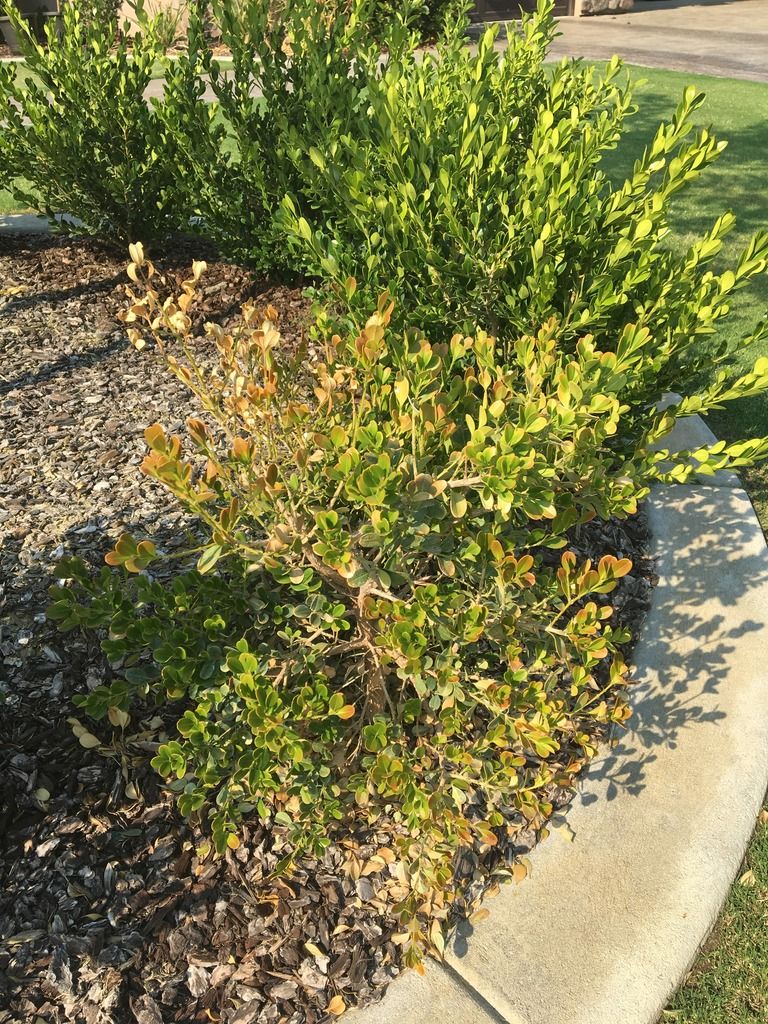
LEAF - WINTER GEM BOXWOOD
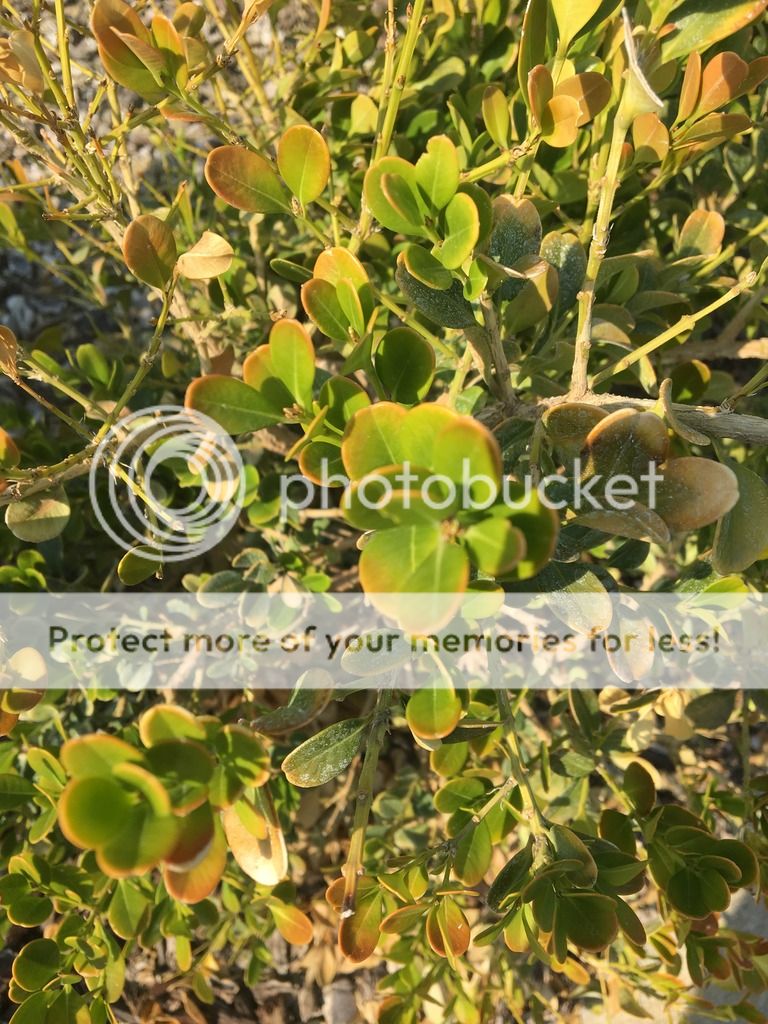
GARDENIA
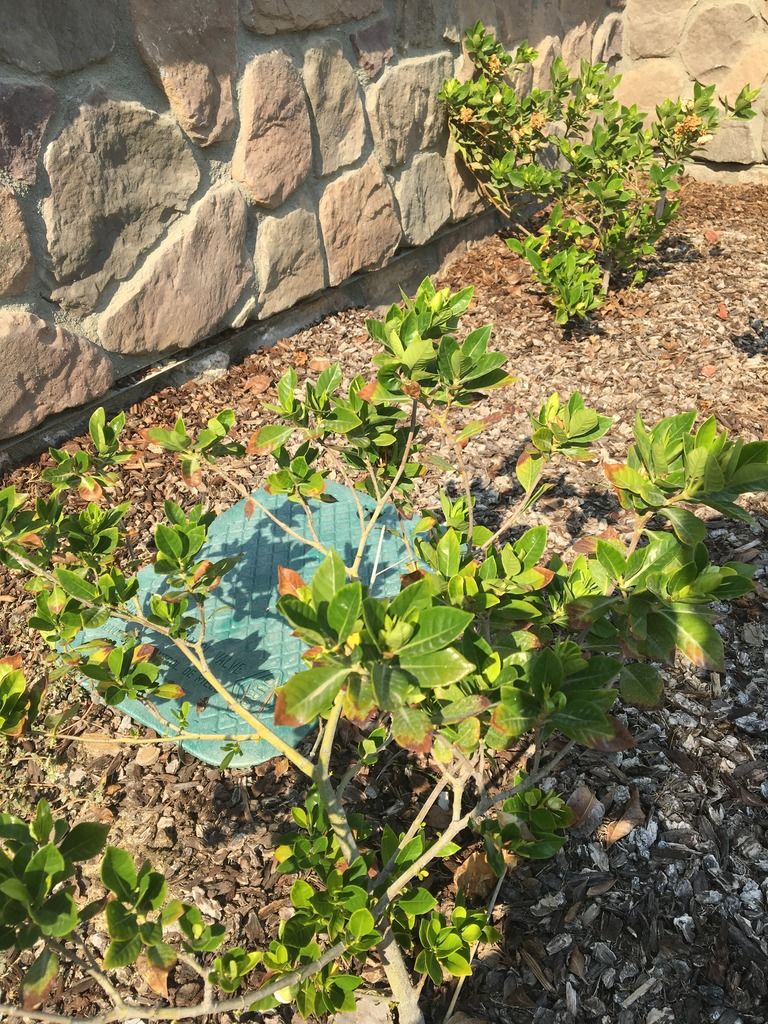
LEAF - GARDENIA
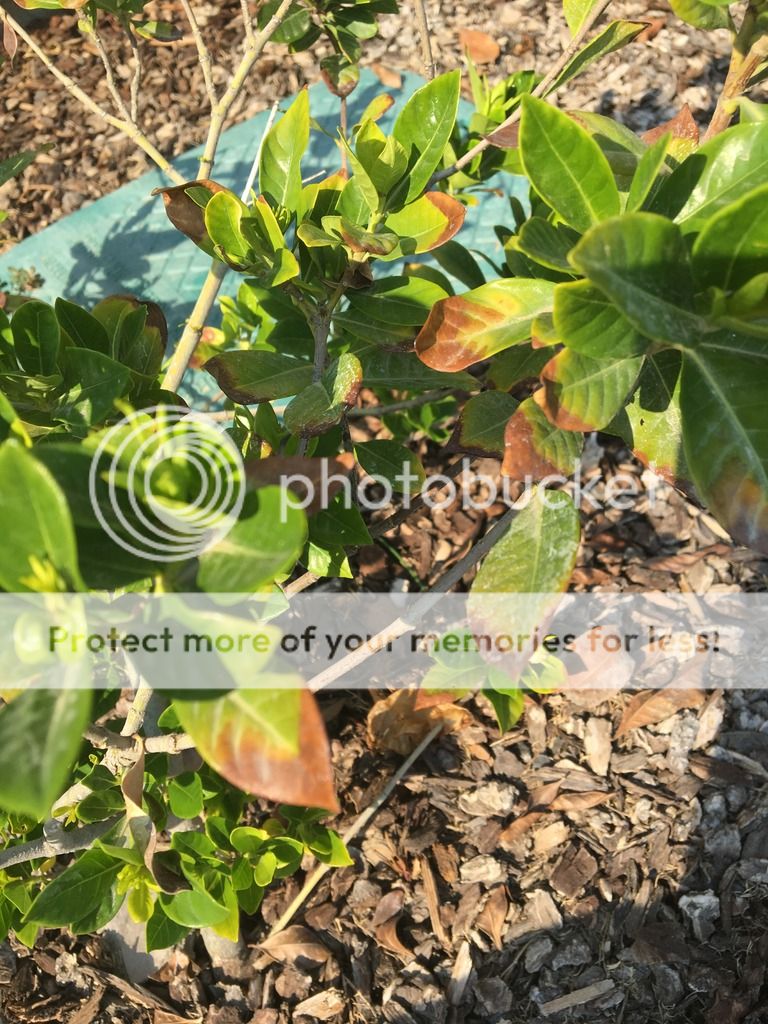
PHOTINIA
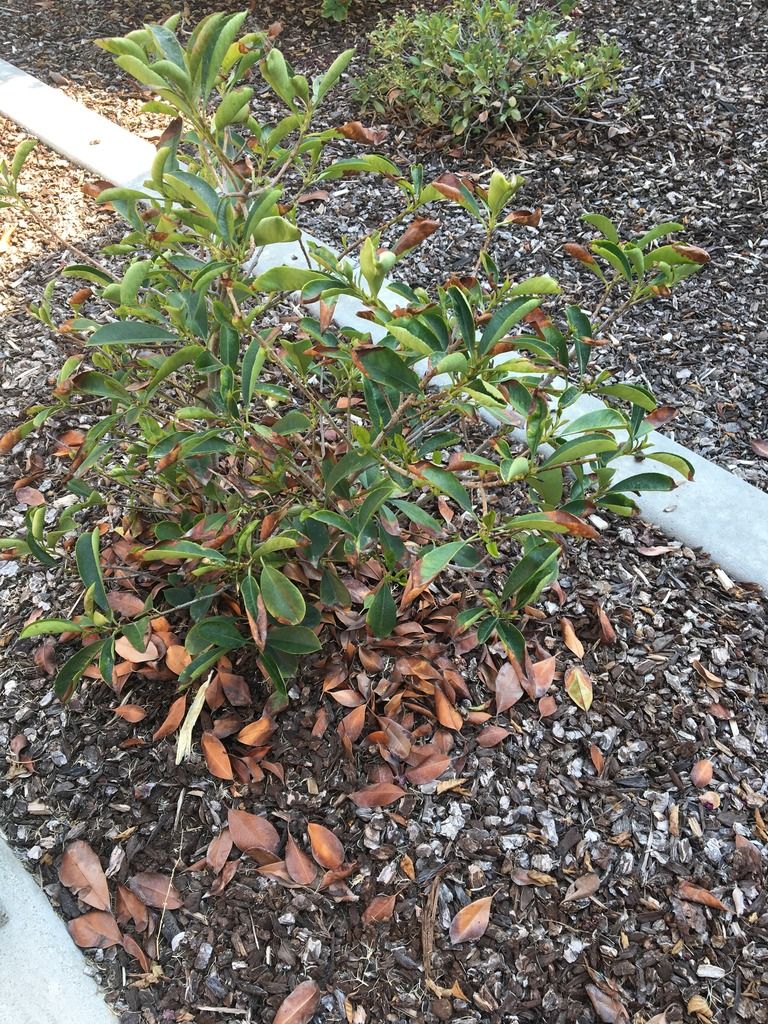
LEAF - PHOTINIA
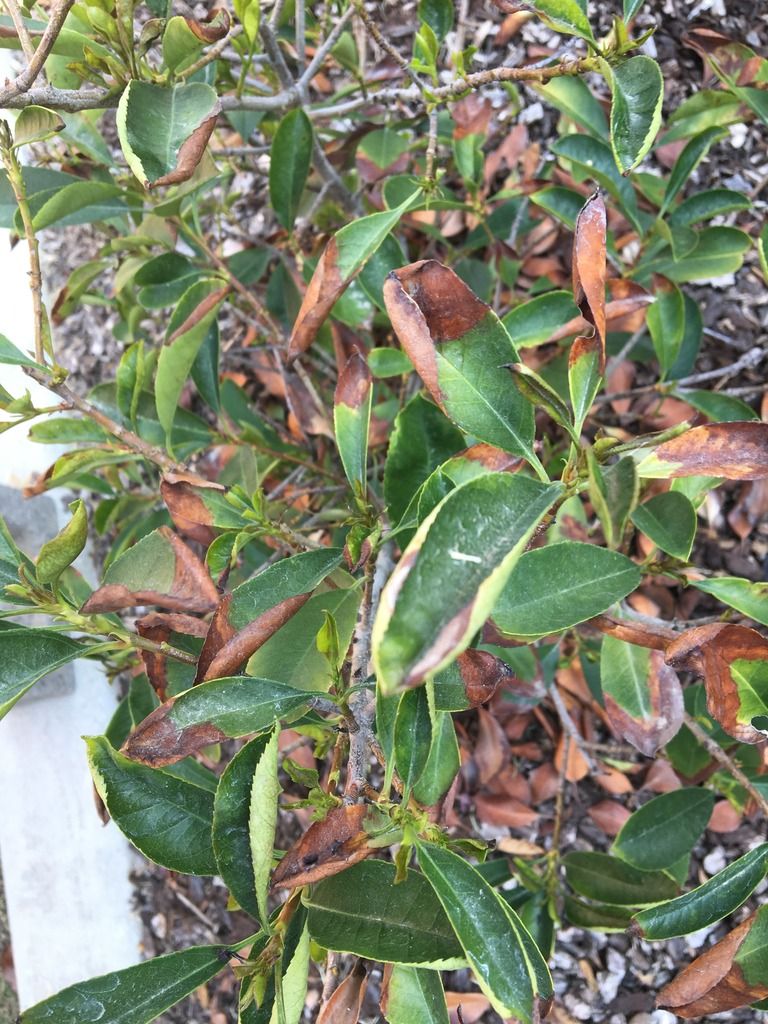
CAMELLIA YULETIDE
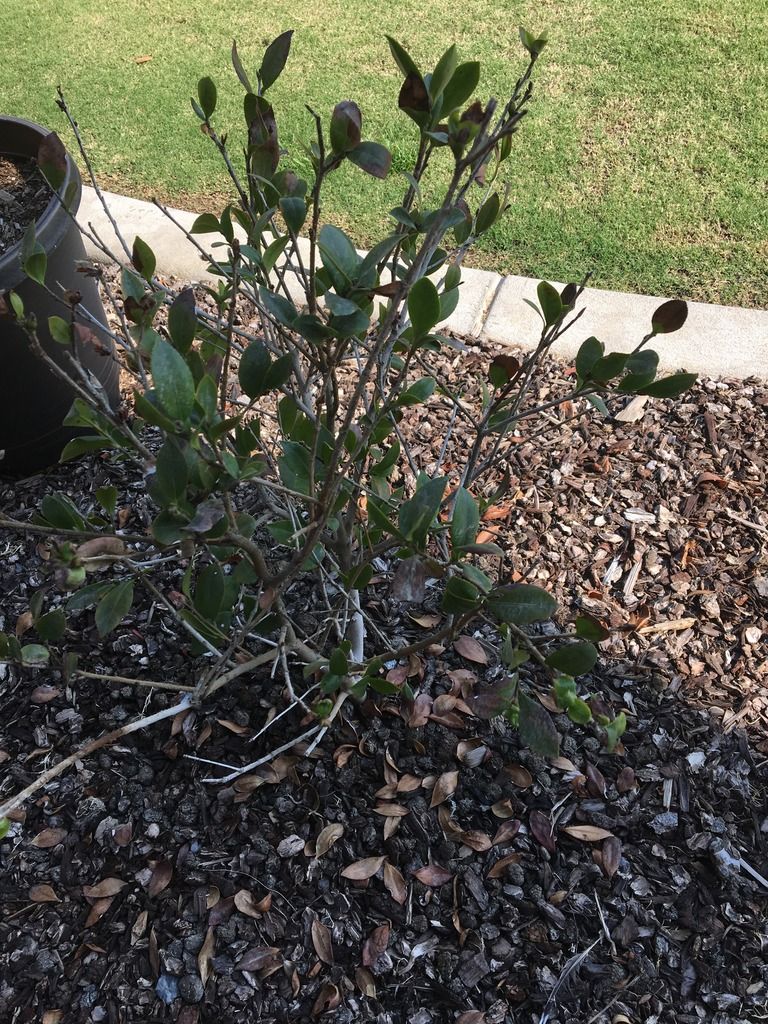
LEAF - CAMELLIA YULETIDE
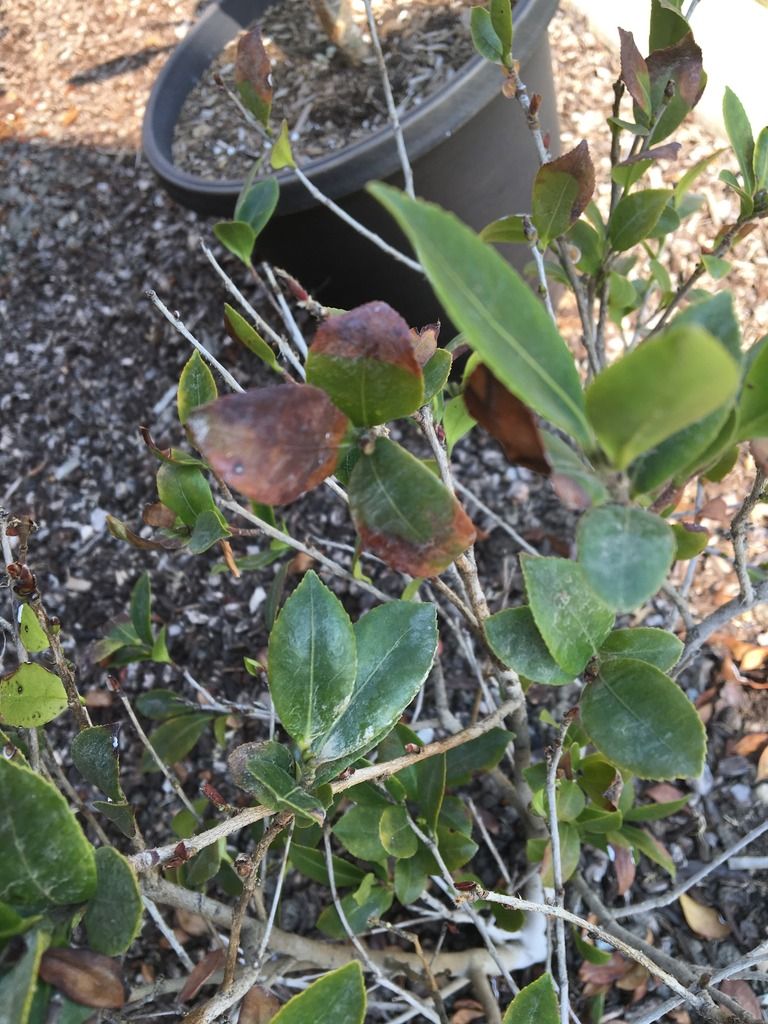
RED OAK
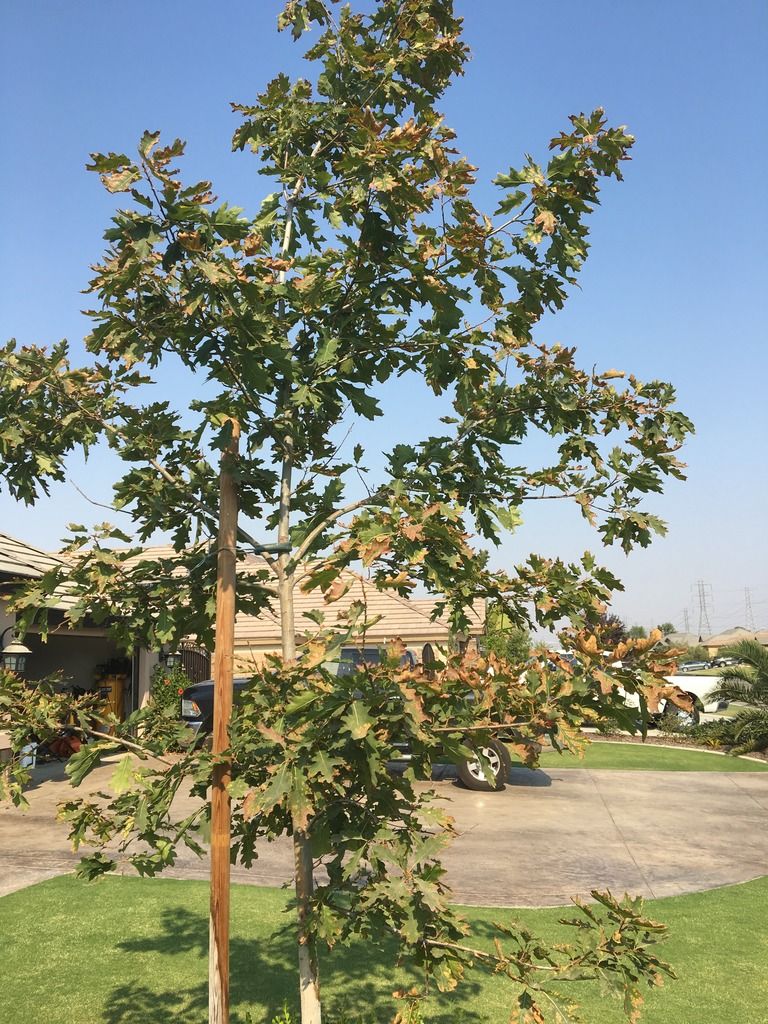
LEAF - RED OAK
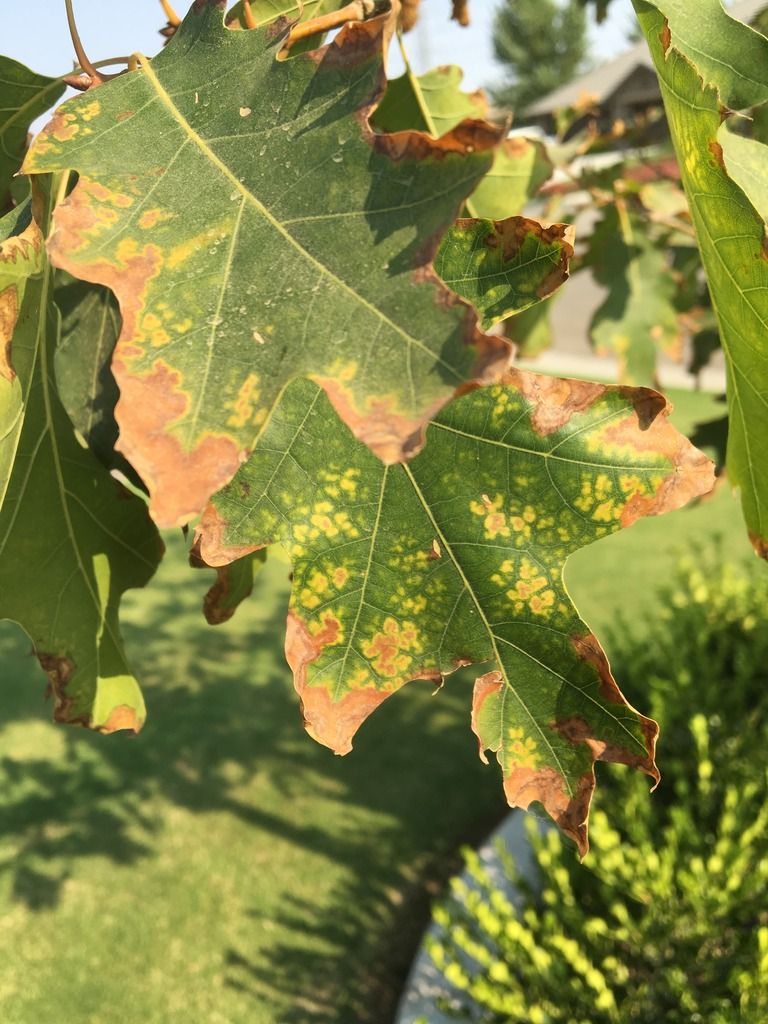
GINKGO BILOBA
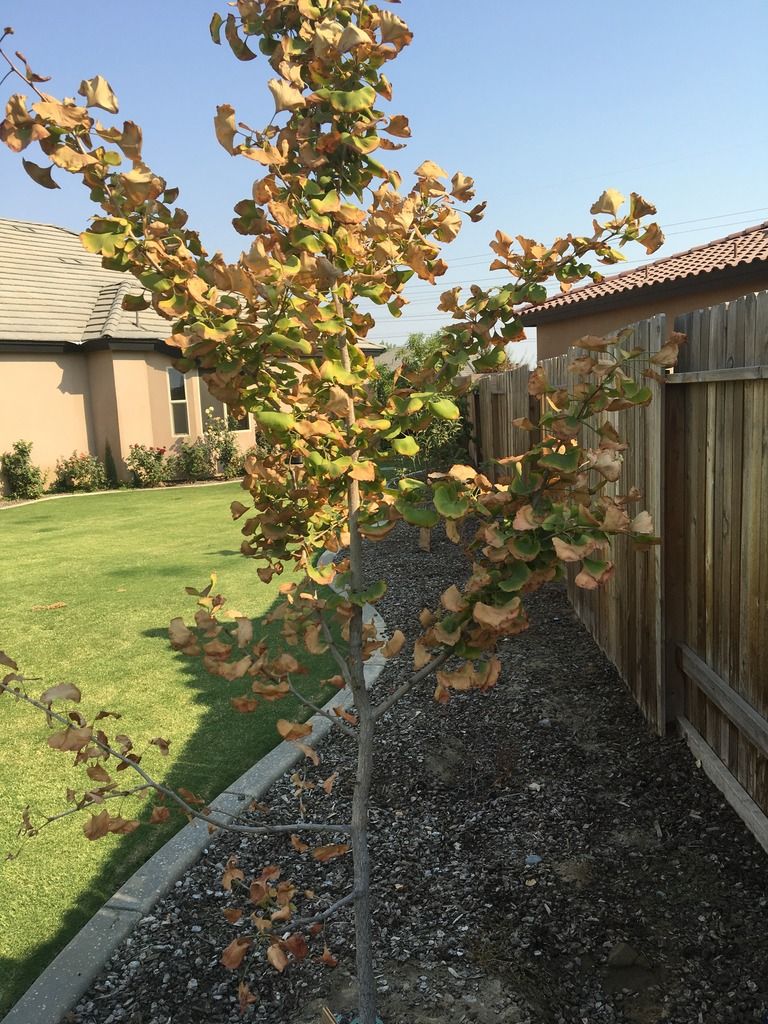
LEAF - GINKGO BILOBA
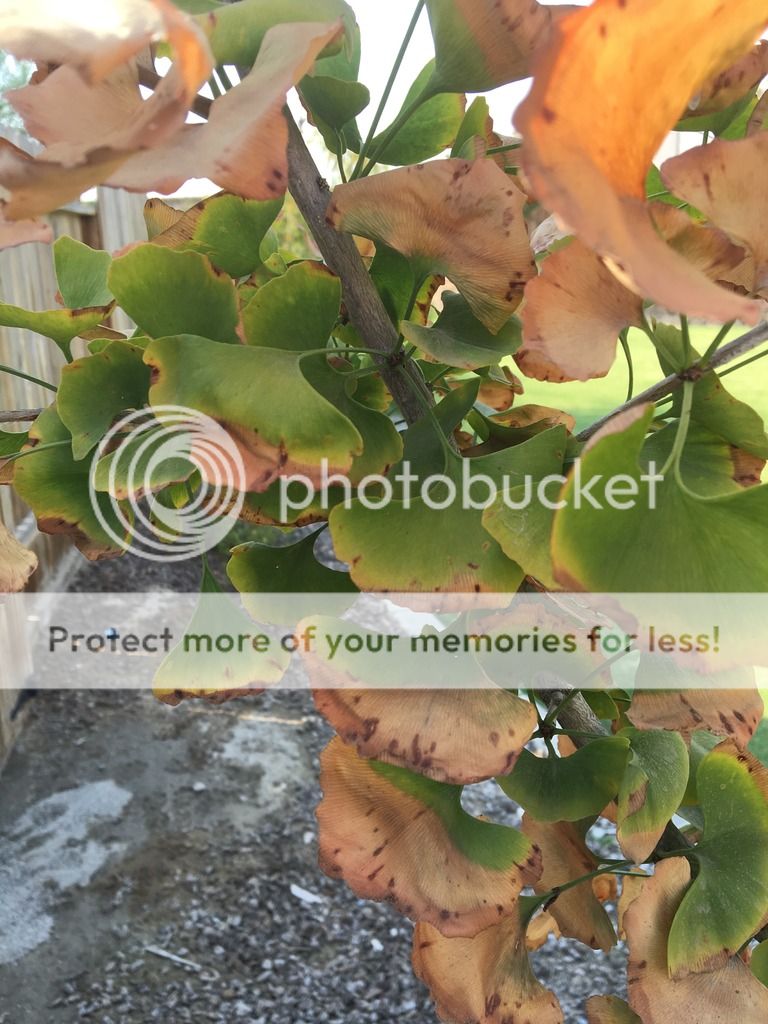
ANOTHER WINTER GEM BOXWOOD NEXT TO A THRIVING ONE
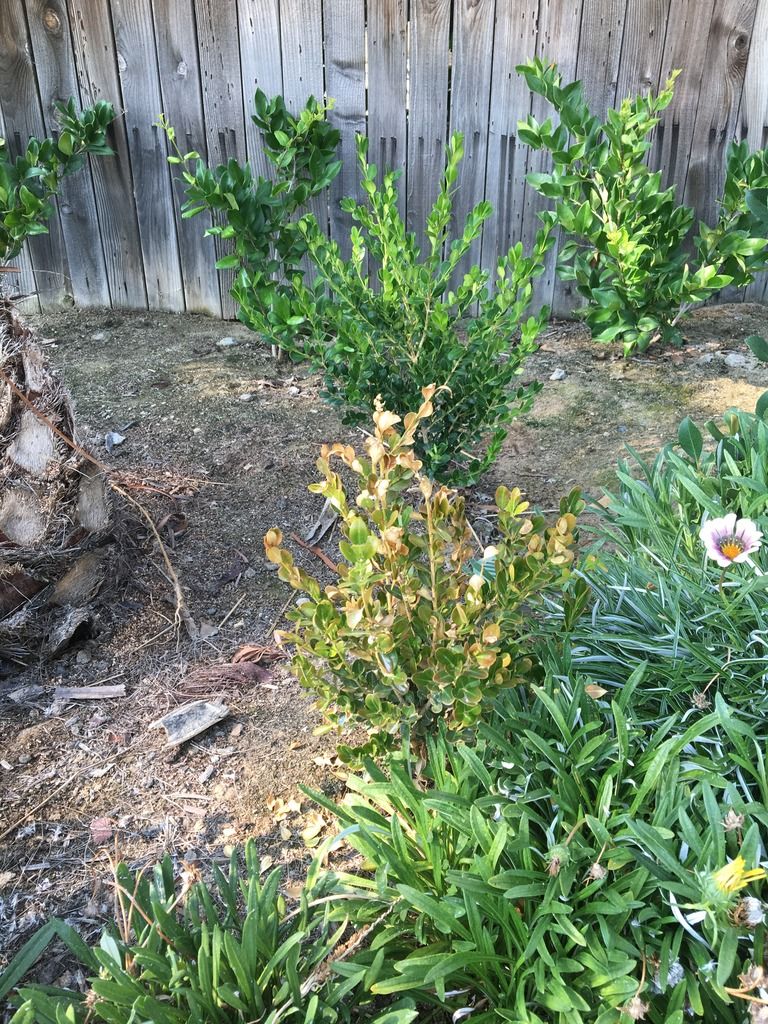
CARPET ROSES (dead) - Notice the thriving carpet roses directly across the street. Same watering schedule, same plant.
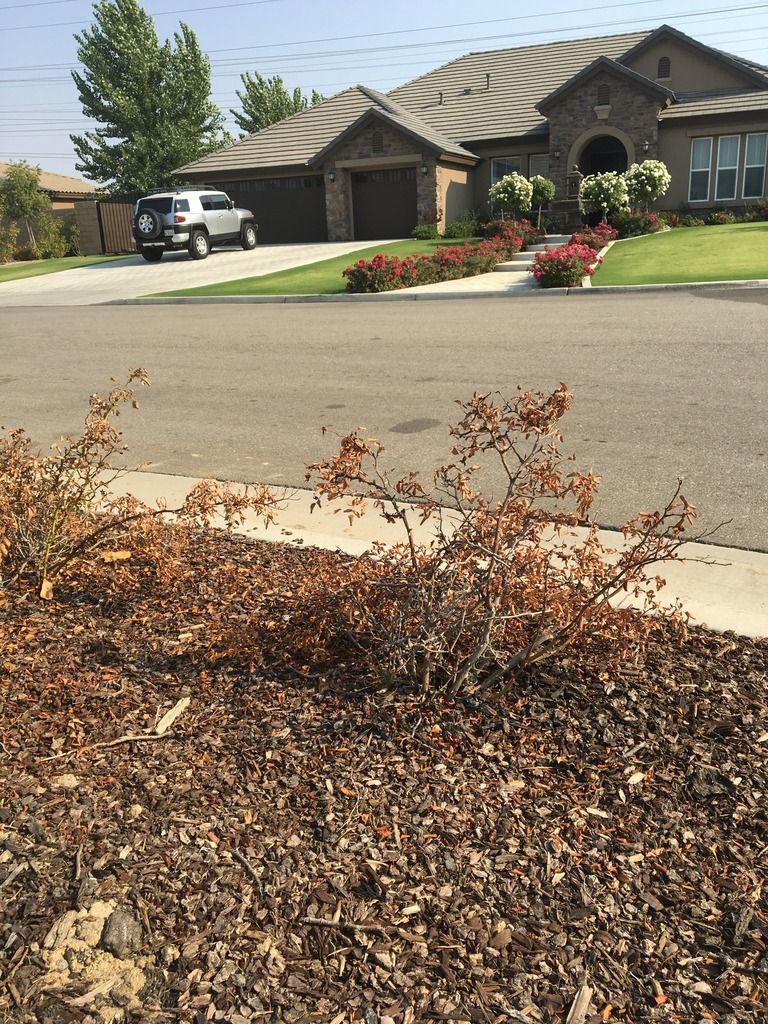
Thanks so much for any help. I'm desperate at this point.
Thanks,
Kelsey Gallegos
I have what seems to be an unsolvable mystery of plants dying. I have various species of plants that seem to be getting attacked by something, and it slowly kills them. The leaves die starting from the tips and working to the base. They then fall off. Growth is basically zero. Whatever is killing them, it's beyond the plant basic needs (water, food, sunlight). This has been a continuing issue for 2 years. Below are all the pictures. Soil test results are attached.
Key details:
- Location - Bakersfield, CA
- Soil type - Sandy Loam (well draining, highly permeable)
- pH - 6.0-7.0 from test probe (treated with sulfur in January after soil test showed pH 7.7-8.2)
- Water - 3 days/week, 15 min/day
- Feeding - Fertigation system, 15 lbs of 20-20-20 fertilizer is spread over 15,000 sq. ft. monthly through sprinkler system.
- Subject Plants: (Bushes) Winter Gem Boxwood, Photinia, Camellia Yuletide, Gardenia, Carpet Rose
(Trees) Quercus Rubra - Red Oak, Ginkgo Biloba - Every bush that is dying is right next too a bush that is doing well, with the same sunlight, water, and food. Something is targeting specific plants.
- Whatever is killing them, it seems to be in the same location - because when a bush dies, it gets replaced by another bush of a different species, which also shows the same symptoms and dies.
- A soil test was performed, and reviewed by an agronomist with a masters degree. Everything checked out satisfactory with the exception that the soil is low in PNK.
- The majority of plants are thriving, but a minority is struggling/dying off.
- It is nearly impossible to over-water. The soil is extremely well draining. For example, the Bermuda lawn needs to be watered daily just to keep it green. Cutting water back speeds up the dying process of the subject plants. Increasing water has no effect.
- I have consulted a gardening professional (known as the Tree Doctor in Bakersfield) and a professional agronomist also. The agronomist is experiencing some of the same issues across the street. He thinks something more complicated might be the issue, such as fungus, root rotting bacteria, nematodes, etc., but he is unsure of any certain diagnosis.
- Soil has been treated with a heavy does of gypsum (1 year ago) because the first prognosis was salt burn. There has been no positive results.
WINTER GEM BOXWOOD

LEAF - WINTER GEM BOXWOOD

GARDENIA

LEAF - GARDENIA

PHOTINIA

LEAF - PHOTINIA

CAMELLIA YULETIDE

LEAF - CAMELLIA YULETIDE

RED OAK

LEAF - RED OAK

GINKGO BILOBA

LEAF - GINKGO BILOBA

ANOTHER WINTER GEM BOXWOOD NEXT TO A THRIVING ONE

CARPET ROSES (dead) - Notice the thriving carpet roses directly across the street. Same watering schedule, same plant.

Thanks so much for any help. I'm desperate at this point.
Thanks,
Kelsey Gallegos
